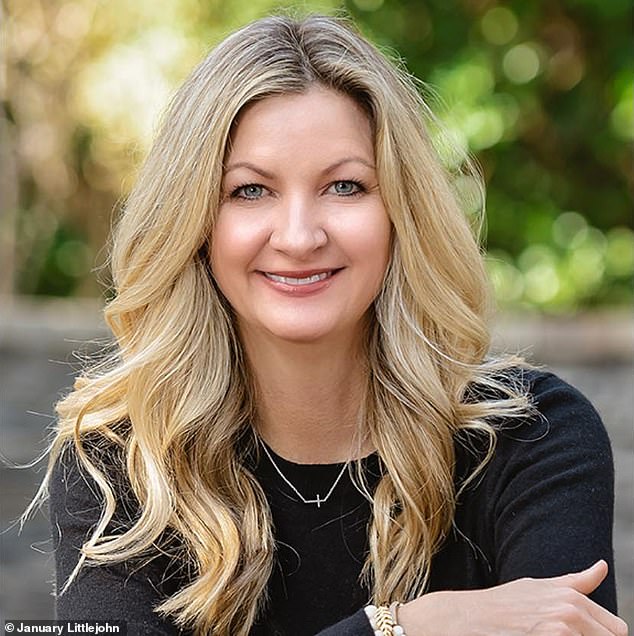A Florida mother says her 13-year-old daughter was placed on the path of medical transition after receiving encouragement from teachers at her school — but all without her parents’ consent.
January Littlejohn, 47, says she was both shocked and heartbroken when teachers at her daughter’s school reportedly met with the teenage girl privately to confirm her belief that she was transgender — all without parental consent.
Littlejohn has now become an outspoken critic of policies that she says have undermined her family in what is a dramatic story about gender identity and parental rights.
Littlejohn addressed protesters outside the U.S. Supreme Court last week, recounting her daughter’s experiences with gender dysphoria and the actions of school officials that she says pushed her child toward a transgender identity.
“I was outraged that three adults had sat alone with my child and agreed to this without my permission,” she said. “It felt like we were in the twilight zone.”
The situation all started in 2019 when Littlejohn’s then 12-year-old daughter started identifying with a new group of friends that embraced different gender identities.
She described her daughter as “quirky” and “unique” but as having low self-esteem, and was initially supportive of her daughter’s social circle. But Littlejohn became concerned as the group’s obsession with gender grew.
At age 13, her daughter discussed medical interventions such as puberty blockers and top surgery (having her breasts removed) with a nonchalance that shocked her parents.
Florida mother January Littlejohn, 47, says her 13-year-old daughter was on her way to medical transition after receiving encouragement from teachers at her school
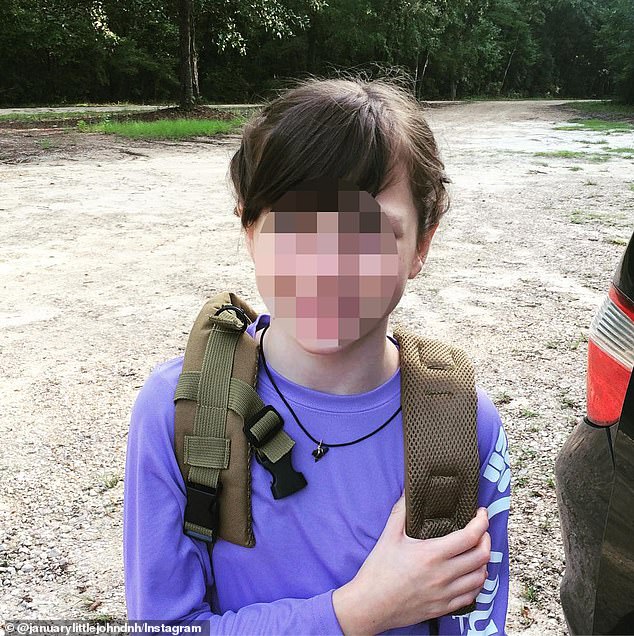
Littlejohn’s then 12-year-old daughter began identifying with a new group of friends that embraced different gender identities. School staff then placed their daughter on a ‘gender support plan’, which included discussing which toilets to use
Unbeknownst to them, school staff had already put their daughter on a ‘gender support plan’, which included discussions about which toilets and changing rooms she would use, pronouns and accommodation arrangements during field trips.
When the next school year started, Littlejohn, a licensed mental health counselor, knew her child wanted to use a different name and warned the school about what they might face.
She told the school that the family had made the decision not to use her new name but to seek help.
Yet the school did not support Littlejohn’s wishes and instead created its own “gender plan” for her daughter, the details of which the school declined to share.
The school did not consult Littlejohn about her own daughter, but about its nondiscrimination policy that treated her teen’s gender identity as protected information.
Littlejohn described the school’s actions as “highly unethical.”
“Why didn’t they question the other problems my daughter was experiencing, like depression and anxiety and her social problems, instead of just affirming this identity that changed four times in two years?” she wondered.
When she contacted the school’s guidance counselor, she also received no information as she tried to figure out what was going on.
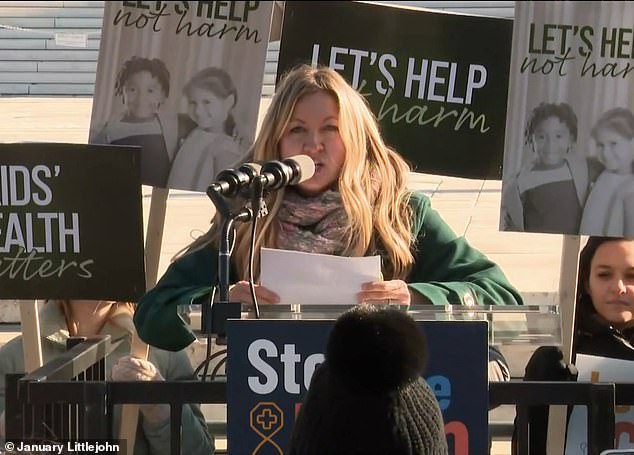
January Littlejohn, of Tallahassee, Florida, is pictured speaking outside the Supreme Court as it weighed the legality of a Tennessee law banning puberty blockers and hormone therapy for minors
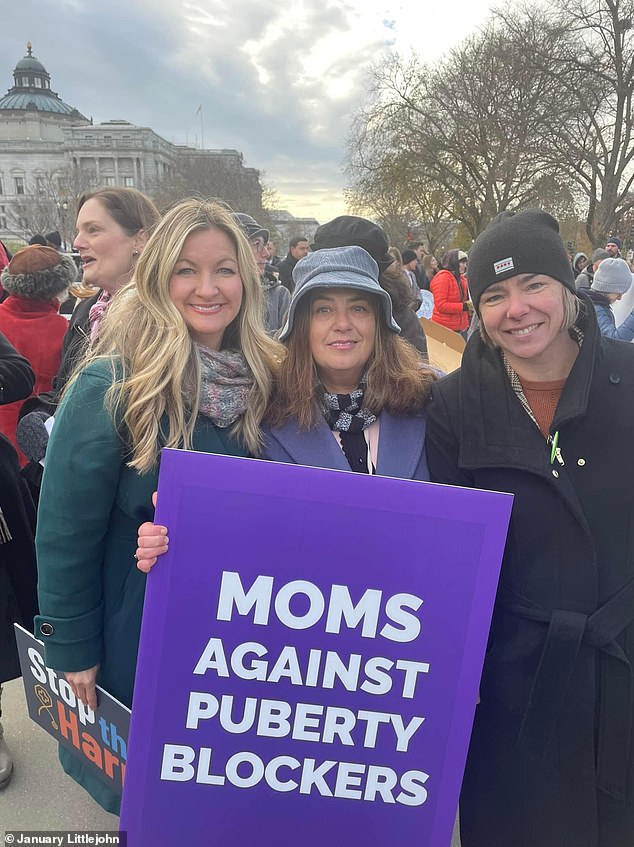
Littlejohn, left, was particularly concerned that, at age 13, her daughter started talking casually about having her breasts removed and taking puberty blockers, the way most people would talk about having their nose pierced or getting a tattoo.
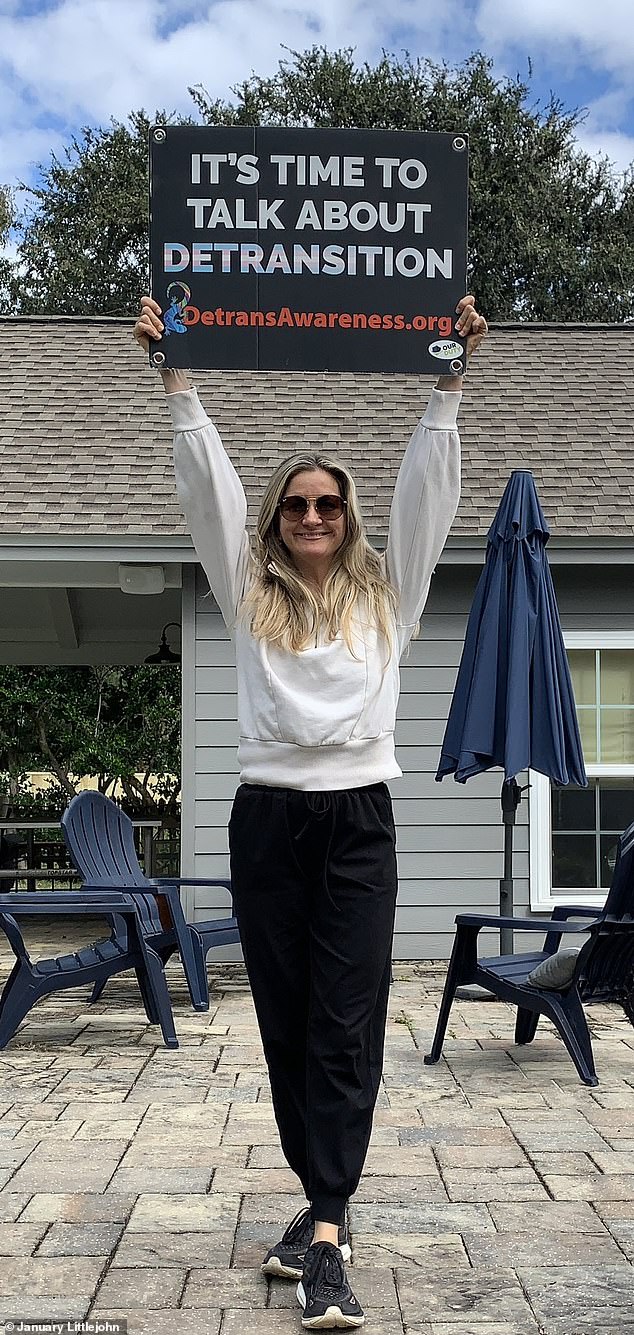
Littlejohn now works with the organization Do No Harm, which advocates against identity politics in healthcare
“I was outraged that three adults had sat alone with my child and agreed to this without my permission,” Littlejohn said. “Only (my daughter) had the burden of determining whether my husband and I would even be informed of this fact.”
Her daughter’s teachers and medical professionals allegedly suggested that she was in fact “harming” her daughter by refusing to affirm her gender identity.
‘I was terrified. I was angry, I was confused,” she said The Telegraph. ‘As a parent volunteer, I ran the school coffee room. They knew I wasn’t a danger to my child, but it didn’t matter.
“What scared me more than anything was what this could lead my daughter to,” she continued.
She wondered why educators focused solely on affirming her daughter’s gender identity while ignoring underlying issues such as her depression and anxiety.
Her refusal to confirm the school’s plan strained her relationship with her daughter, whose mental health began to suffer.
“I watched my child deteriorate, continue to dissociate and hate her developing body, and I watched teachers at her school encourage her and celebrate this new identity,” she told the newspaper. Daily Telegraph.
‘She talked very cavalierly about having top surgery at 13 and taking puberty blockers the way most people would talk about getting their nose pierced or getting a tattoo.
‘It felt like my husband and I were the only ones trying to stop her from making this irreversible decision.

Littlejohn was told that her daughter’s teachers and medical professionals allegedly suggested that she was in fact “harming” her daughter by refusing to affirm her gender identity.
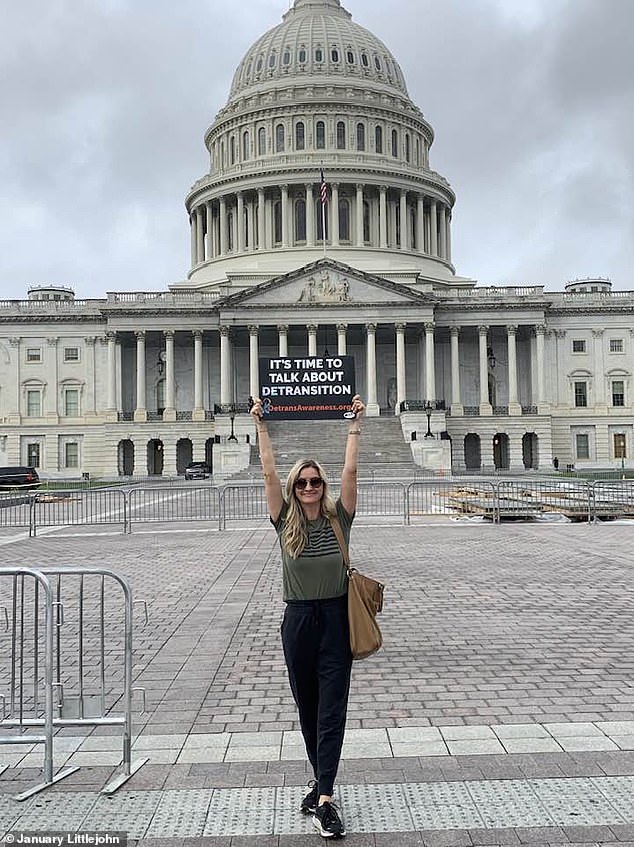
In October 2021, Littlejohn filed a lawsuit against the school district, accusing it of violating her parental rights, although the case was dismissed by a judge in 2023.
“The light had gone from her eyes,” Littlejohn continued. “My daughter was happy, she was happy, she was quirky, she was full of life, but during this time there was darkness.
“She was so angry and it was just heartbreaking to see. And I was so frustrated seeing teachers celebrating this false identity.”
Finally, after weeks of emails, she finally got to see her daughter’s six-page gender plan, designed to ease her social transition.
Towards the end of eighth grade, Littlejohn and her husband decided to take their daughter out of school, limit her Internet use, and focus on rebuilding their relationship.
Over time, they helped her reconnect with her body and regain her confidence.
“It took us a long time to repair that relationship and rebuild that trust,” she explained.
Now seventeen, Littlejohn’s daughter is thriving as a high school senior, but mourns the years lost to what her mother calls “an ideology that stole two and a half years of her life when she should have been carefree and engaged in normal teenage activities.” .
“Instead, she was miserable, she was depressed, she was anxious, she was hyper-focused on becoming something she could never become.
In October 2021, Littlejohn filed a lawsuit against the school district, accusing it of violating her parental rights.
Although the case was dismissed by a judge in 2023, it was a catalyst for the passage of Florida’s controversial Parental Rights in Education law signed by Governor Ron DeSantis.
The law limits classroom teaching about gender identity and sexuality, a move critics say will marginalize LGBTQ+ students.
Littlejohn now works with the organization Do No Harm, which advocates against identity politics in healthcare.
Speaking before hundreds of people outside the Supreme Court as inside justices weighed the legality of a Tennessee law banning puberty blockers and hormone therapy for minors, she emphasized the broader stakes of her family’s ordeal.
“These girls are at war with their bodies and it’s a war they will never win,” she said.


